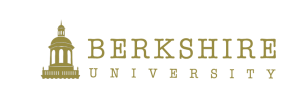Clinical Mental Health Counseling, MS
The Master of Science in Clinical Mental Health Counseling is designed to provide students with comprehensive preparation for professional practice as a counselor through rigorous coursework and carefully supervised practical experiences in field settings. The program integrates mental health counseling theories and approaches, principles and practices of diagnosis, evidence-based treatments, and strategies for referral, prevention, and advocacy to meet the needs of diverse clients. Graduates will be prepared to assume a variety of positions in the counseling field and be equipped to model the highest standards and ethics of the profession.
Program Objectives
The Clinical Mental Health Counseling program enables students to contribute to the profession through independent learning, scholarship, and research. Upon completion of this program, student’s will:
- Understand the role, function, and professional identity of counselors, understand professional issues unique to mental health counseling, and promote the growth and development of the field of professional counseling.
- Acquire an understanding of and adhere to the ethical and legal considerations and the principles and professional values related specifically to the practice of clinical mental health counseling.
- Be able to articulate an informed comprehension of a variety of theoretical perspectives on human behavior as well as articulate their personal rationale for and approach to counseling.
- Develop self-awareness, knowledge, and skills related to issues of diversity and multiculturalism to serve more effectively a broad spectrum of individuals, families, and communities, including demonstrating effective strategies for client advocacy and matters of equity and accessibility.
- Demonstrate knowledge and application of appropriate individual, family, group, and systems modalities for counseling, including the use of prevention, crisis intervention strategies, career/occupational counseling, and encouragement of self-help.
- Develop knowledge and application of principles and models of biopsychosocial assessment, case conceptualization, theories of human development and concepts of psychopathology leading to diagnoses and appropriate counseling plans.
Program Outline
To receive a Master of Science in Clinical Mental Health Counseling, students must earn 60 graduate semester credit hours. Fifty-four of the program hours must be completed through BSU. Program requirements are as follows:
| Master of Science in Clinical Mental Health Counseling Major Courses (60.0 credit hours) Core Counseling Courses (36.0 credit hours) |
|
| Foundations of Counseling | 3.0 credit hours |
| Counseling Across the Lifespan | 3.0 credit hours |
| Counseling Skills and Techniques | 3.0 credit hours |
| Counseling Theories and Practice | 3.0 credit hours |
| Ethical and Legal Issues in Counseling | 3.0 credit hours |
| Group Theories and Practice | 3.0 credit hours |
| Career Counseling | 3.0 credit hours |
| Counseling Advocacy with Diverse Populations | 3.0 credit hours |
| Crisis Counseling | 3.0 credit hours |
| Counseling Intervention and Treatment Planning | 3.0 credit hours |
| Assessment in Counseling | 3.0 credit hours |
| Research and Program Evaluation | 3.0 credit hours |
| MHC501 is taken in the first semester of the program. Students must successfully complete all core courses prior to enrolling in MHC660. | |
| Specialization Courses (15.0 credit hours) | |
| Psychopathology and Diagnosis | 3.0 credit hours |
| Counseling in Community Settings | 3.0 credit hours |
| Couples and Family Counseling | 3.0 credit hours |
| Foundations of Addiction and Addictive Behavior | 3.0 credit hours |
| Counseling and Sexuality | 3.0 credit hours |
| Clinical Experiences (9.0 credit hours) | |
| Practicum in Counseling | 3.0 credit hours |
| Internship in Counseling | 3.0 credit hours |
Students take two MHC661 courses after completion of MHC660. MHC661 is taken in the final two semesters of the program.
NOTE: Courses in the program are 16-weeks in length. Most courses are asynchronous in nature, however some courses may require students to participate in activities at set times (e.g., group supervision). Students are required to attend four on-campus residencies at specified times during the program prior to taking practicum and internship courses.
Residency Requirement
The M.S. in Clinical Mental Health Counseling requires four weekend-long, on-campus residencies. During residency, students will focus on skill development in individual and group counseling, applying knowledge gained in coursework. Students will receive individual interaction, direction, and feedback from faculty members, opportunities to share experiences and insights with peers, and preparation for clinical work in practicum and internship settings. Residencies are taken with specific courses and therefore are offered at specific times during the program. When following a typical student program plan, students will complete one residency per semester during the first year of the program and a final residency while completing the practicum experience. Students may not be allowed to continue with coursework until the required residency experiences are completed.
Clinical Experiences
Toward the end of the program, students will complete clinical experiences, referred to as practicum and internship. During this time, students have the opportunity to put into practice what they have learned in their coursework and residency experiences. Students will practice foundational counseling skills and gradually integrate more advanced skills, while receiving individual and group supervision.
Students will be responsible for selecting an appropriate site that can provide the types of activities, clients, and clinical supervision required. Students should consult with their academic advisor and the program handbook for details regarding their required experiences and supervisor qualifications.
Students are required to obtain a minimum of 100 hours of practicum experience and 600 internship hours. In some states, including Florida, students who do not graduate from a CACREP- accredited program may be required to obtain a greater number of practicum/internship hours to fulfill licensure requirements. Students are encouraged to obtain a minimum of 1000 hours of clinical experience (of which 40% should be face-to-face client contact hours) to meet various state requirements.



